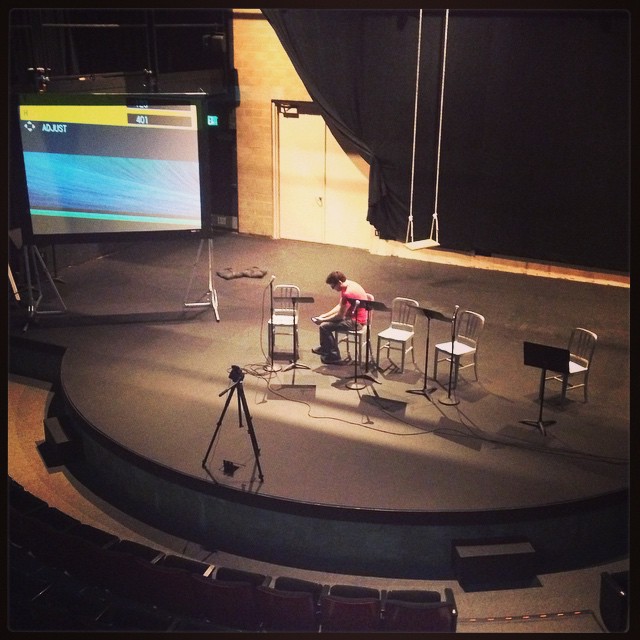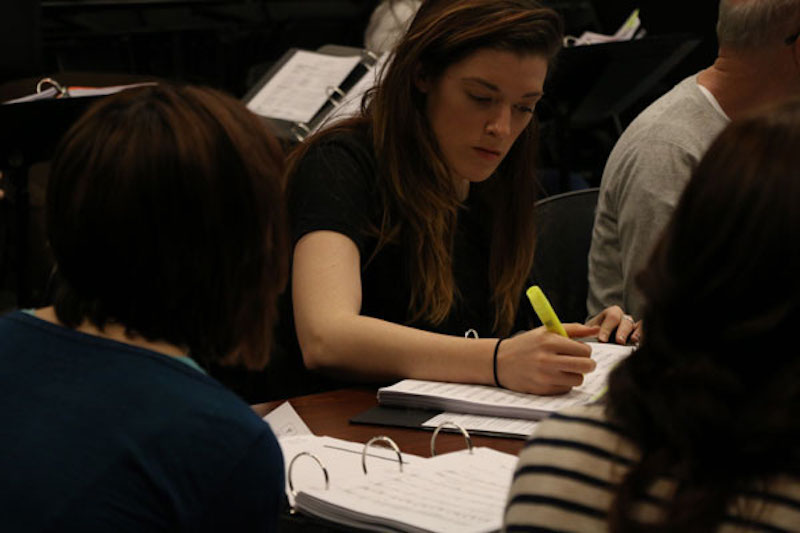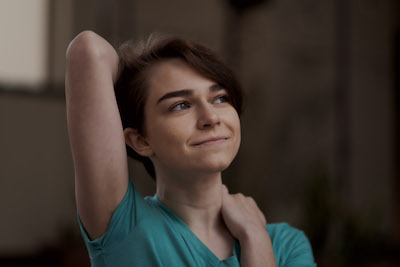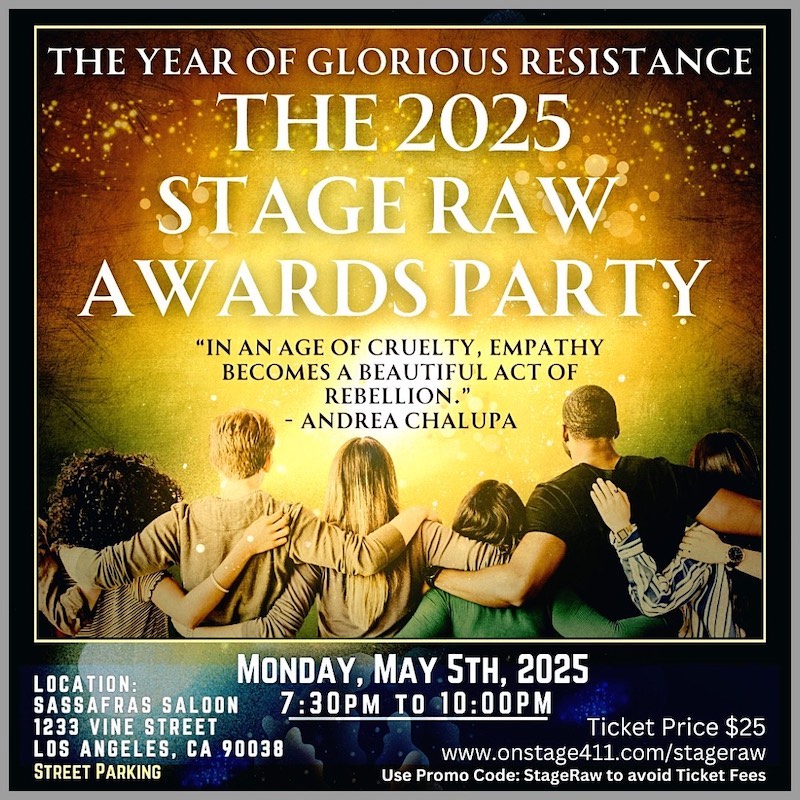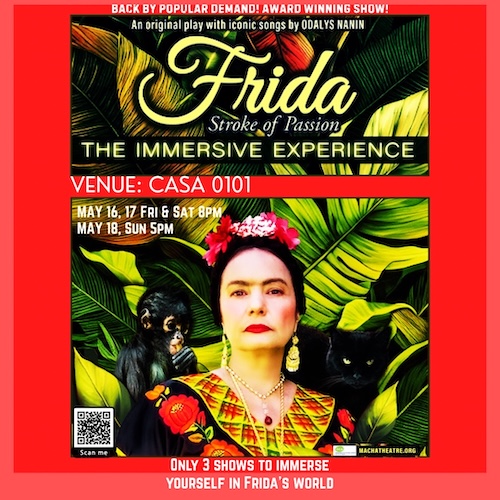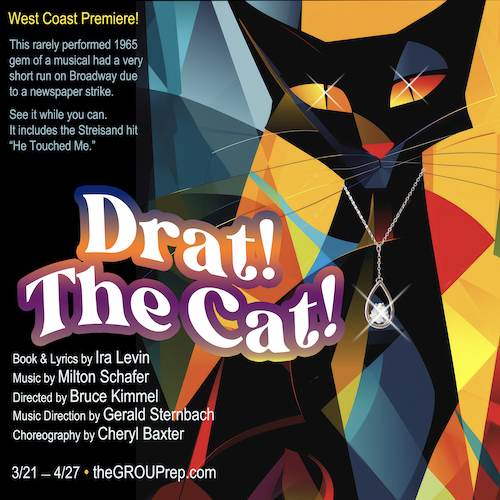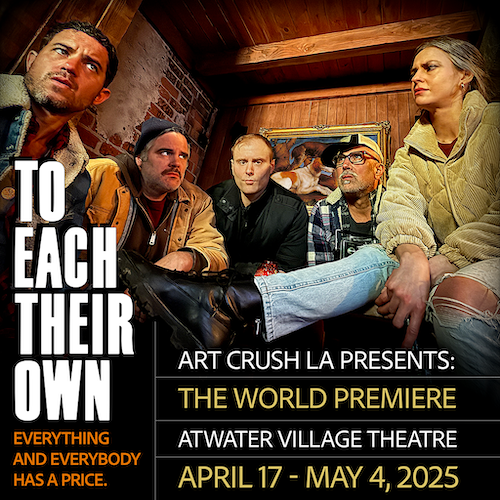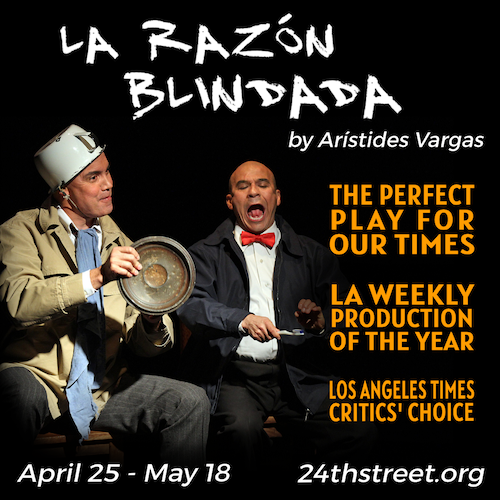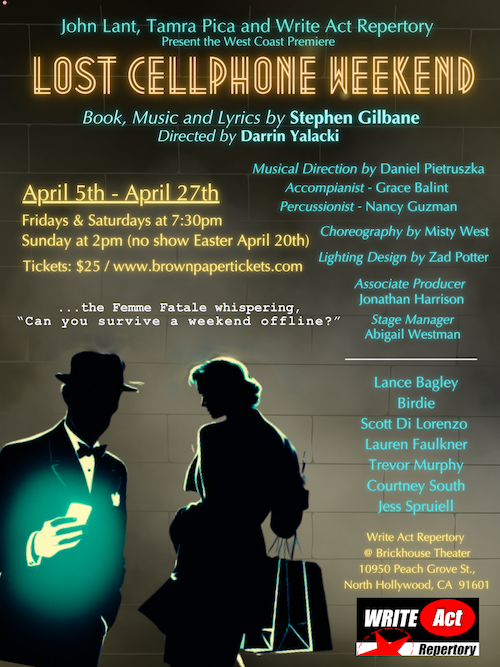
I Am Here
By Socks Whitmore
This essay is provided in partnership with The Unusual Suspects Theatre Company, which commissioned Stage Raw to write and edit a series of articles for its print magazine, Devise, to be distributed at theaters region-wide.
When people ask me what my favorite musical is, I love to make a big show of taking offense. “You can’t ask a musical theater writer their favorite!” But after a moment of faux deliberation, I always come back to the same answer: the show that means the most to me has to be one of my own creation.
I knew for a long time that I wanted to write music, but growing up, I actually didn’t have access to much music at all. I was born and raised in western Maryland, spending my formative years in a constrained, religious household with little ability to express my discontent. When the events of my life weighed heaviest on my heart and mind, my safest spaces were found in the odd pairings of musical cast albums and punk rock I would weep to in my basement bedroom, moved by the music’s ability to communicate pain in a way everyday words could not. It was that feeling of being held, heard, and seen that first inspired me to pick up the pen and tell lyrical stories of my own.
I ceased to call Maryland home in 2017, when I left the state to study voice at the California Institute of the Arts (CalArts). I finally started writing musical theater as a freshman voice student, and now just a few whirlwind years later, I have projects of all shapes and sizes under my belt—many of which I’ve produced, directed, and performed in! I never could have guessed how each one would shape the path I took, or how they would change me as a person forever.
Taking the Leap
Once I was free from the repressive environment of my childhood, I was driven to learn more about mental health and reclaim control over my brain from the traumatizing experiences I had undergone. I began writing my first musical that very fall: We Are Here, a two-act show about a high school guidance counselor who uses her own trauma to relate to her students, but who gradually spirals when an abuser from her past is hired as the new principal. As part of the development process, my writing partner and I hosted almost a dozen community discussion groups around topics of mental health (like “What Are Content Warnings and (Why) Do We Need Them?”), and facilitated over 30 interviews with individuals who offered personal perspectives on mental health. We also invited willing interviewees to share audio recordings with us that became part of the show’s sound design. The end product moved the audience to tears.
Many of the narrative elements in We Are Here were informed by my own life experience and reflected not just what had happened to me, but what I had wished would have happened instead. The script became a vehicle of healthy introspection, reflecting what we had learned from the endlessly varied perspectives we were introduced to in our intensive research process and including nuanced portrayals of concepts like asking for consent before touching someone having a panic attack. These ideas were also included in our rehearsal process and I’ve brought them into every space I’ve been in since; the knowledge I gained from the devising of this piece laid the foundation for a lifetime of emotional literacy work, truly opening the door for me to heal my trauma through making theater.
Going Back to One
The writing process for We Are Here intersected with another major milestone moment of my life: coming out as gender non-binary. I came out publicly in July of 2018 and went into the workshop production socially presenting as non-binary for the first time.
The many projects I participated in during my first year of transition taught me a lot about how to navigate artistic spaces as a transgender person—and the many trans artistic spaces I navigated in my second and third years of transition taught me the critical value of community.
My relationship to other trans people was immensely influential when it came time to write my second musical. In 2019, I began to develop a one act show called Back to One: A Coming of Self Musical about a trans man raised as a child actress who is asked by his sister to reprise the rolTe he played as a kid. The two major themes of this piece were dysphoria of the past self and healing the rift between queer kids and their families—both unresolved ideas within my heart that I was anxious to unpack. For the workshop production, I assembled my first-ever all-trans team, from cast to crew, and dove into a new research process to better understand the binary transmasculine community.
As an autistic adult who was then undiagnosed, I may have been a little bit overeager to “challenge” myself by diving in headfirst. As 2020 rolled around, I was having difficulty advancing the development of the material—thankfully, Ms. Rona came around just in time to nullify my scheduled performance for April 18, 2020, leaving Back to One with nowhere to go for… quite some time.
The three years that followed were slow but important ones. Though my trans team from the 2020 pipeline scattered to the wind, the digital nature of the stay-at-home quarantine era empowered me to connect with countless transgender artists from across the continent. Every so often, I would bring Back to One to the table in some way, performing a song from it or sending it out to Trans Gender and Non Conforming (TGNC) dramaturgs, but I also engaged with digital theater, voice over, cabarets, anything that I could to keep making art with other artists.
Time went on, live theater slowly returned, and one day I had the blessing of receiving a grant to put up a concert reading. It was time to go back to Back to One.
When I finally sat down to finish this beloved piece, I realized that I was a different playwright from what I had been before. My 2019 self had come to the table with hopeful intentions and a strong idea, but it was my 2023 self that was ready to finish the job. The time I had spent outside of the live theater space had introduced me to people of different genders, races, abilities, ideas, and identities that I was now able to reflect in my process. The ending I wrote for the show was an idea my younger self could not possibly have dreamed up—it was a humbling, yet empowering experience to learn that I could not have finished this piece a moment sooner than I did, but that I had gained the tools to do so by trying. I reflected on the themes of dysphoria and reconciliation in new ways, and I understood my own writing more deeply.
This show healed me—not in the moments on stage or in the rehearsal room, but in the seconds surrounding it, where it existed to remind me why I became an artist. When I at last presented the finished work, I was rewarded with the sweetest shower of heartfelt response from the audience members who at last felt seen… by my work.
From Page to Stage
As a multidisciplinary artist, I don’t spend all my time working on my next musical. Writing is a natural means of healing because I can be in dialogue with myself, in public or otherwise, but some of the most interesting growth I’ve experienced in theater has been as an actor being directed by others. The most meaningful piece of theater I’ve been in (that I didn’t write) wasAlterea Inc’s Stardust, an immersive show with multiple concurrent narrative threads to discover and affect. I was given a backstory for my character, a gender non-conforming youth who was faced with the choice to either reconcile with family or ascend to the heavens, but ultimately I was given free reign to develop them into a complete and unique person. I named them Malachite Burns.
Mal will always hold a special place in my heart because I modeled them after myself in many ways. Mal was visibly neurodivergent and shy, but also eager, kind, and charming. In character, I portrayed panic attacks and anxiety, and was always struck to find that my audience members did not abandon me. I experienced such generosity, compassion, and warmth from total strangers who loved and accepted Mal for a night without judgment.
The scripted story offered a powerful opportunity to unpack complex experiences in-scene, carried by improvisation and character work for much of the show. The coming-of-gender elements of the narrative had a meaningful impact on audiences, but as Mal, I was almost more excited by the development of a polycule with two other characters halfway through the show’s run. A month before we opened, I had celebrated my one year anniversary with my real-life partner/polycule, and this was my first time in a performance space where intercharacter polyamorous exploration was not just “allowed,” but encouraged. The safety I felt in having permission to try things, to be vulnerable, and to be supported without hesitation was akin to drama therapy—I cannot thank Mal enough for that magical opportunity.
All in the World
Every individual’s experience with theater will be different and personal, and that’s something to be welcomed. Whether you write, act, or simply want to feel known, theater offers the tools to express, process, and understand deeper parts of yourself. To paraphrase someone rather famous… All the world’s a stage, and all the people merely players. So play!


